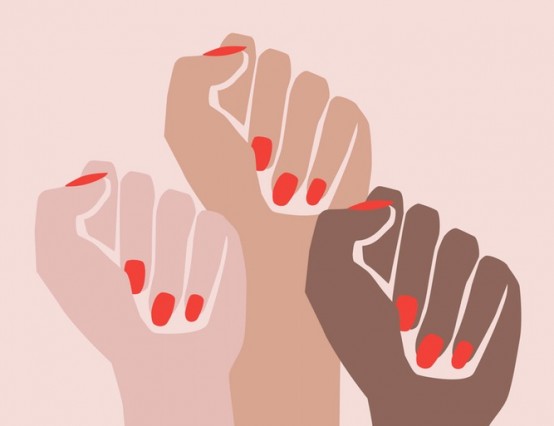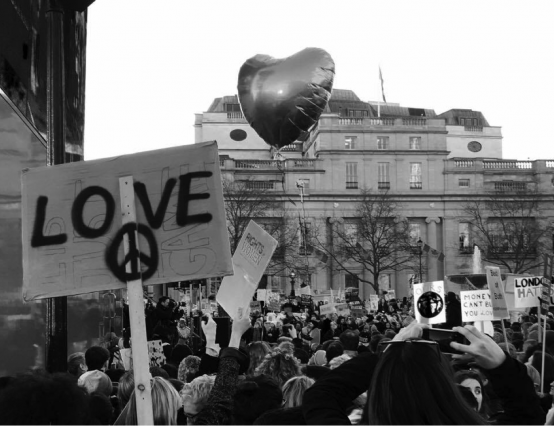Prejudiced language often goes unnoticed, words that are offensive to minority groups are being misused and remain unchallenged. This is the case with medical terms for intellectual disabilities being used as abusive slang to put down someone or their opinion. I'm talking about words such as retard, spastic, moron, mong and mongol.
As a sister to someone with learning disabilities I am continuously shocked at hearing these words used as insults. Even more shocking is how people react when questioned on their choice of word. 'I didn't mean it like that' is the common response and I wonder what other way the person possibly could have meant it? Because if you call someone a moron or a retard, you are actually comparing them to someone with an intellectual disability, you are stating your (perhaps unconscious) prejudice clearly that you believe someone with an intellectual disability is inferior.
This is abhorrent to me as someone who knows the value of my sister's life to be equal to everyone else's.
I hear at least one example of these derogative words spoken around me everyday, if not more. They have become so accepted and normalised in our society that many people are unaware of how these words demean people with intellectual disabilities.
I'm not just hearing these words on the street or amongst my peers, they're also rife on social media and even in forums that are defending such issues as equality. They are a common occurrence in feature films, television, comedy and reality shows.
For now, let's focus on the word retard, and it's definition.
Retard (originating from the word mental retardation)
1.Delay or hold back in terms of progress or development.
"Mental retardation is a developmental disability that first appears in children under the age of 18. It is defined as an intellectual functioning level (as measured by standard tests for intelligence quotient) that is well below average and significant limitations in daily living skills (adaptive functioning)." - Medical Dictionary
I want to try and explain to you the hurtful effect of using these words as a put-down. People have said to me: "What does it matter? It's just a joke, it's just the same as calling someone stupid." Well to those people who don't have an intellectual or developmental disability maybe it doesn't matter. They might not have stopped to imagine what impact it would have on them if they had a lifelong condition, and how the name of that condition was commonly used as an insult around them. So I'm going to give you some examples to help those people imagine what it might feel like:
Imagine you had brown eyes (like me) and you were walking down the street and you were waiting at the bus stop. There are two girls also waiting at the bus stop and you overhear their conversation: "My tutor accused me of writing stuff on the board before class, and gave me a detention!" The other girl then replies: "Ugh he's so brown eyed!" The bus pulls up and you get onto it, the bus is delayed because of a car that's been stopped in front by the police. There's a man behind you who says: "I'm going to be late for my shift. This is SO brown eyed."A girl opposite realises that she has boarded the wrong bus, and gets up and runs for the door, tripping over a boy's foot, the boy mutters grumpily: "Brown eyed!"
None of these insults have been directed at you. But you have always had brown eyes, and you always will have. How would you start to feel about yourself and how others view the worth of people with brown eyes?
If you're still convinced that using words like moron, mong and retard wouldn't and shouldn't affect other people, and that 'it doesn't matter if it's used as a put down because everyone uses it and everyone knows I don't mean anything bad to people with intellectual disabilities.' Then you might find this interesting.
Jane Elliot in 1986 conducted an experiment in discrimination to teach her students about racism. Martin Luther King had just been assassinated and she was appalled at the racism rife in society. She set out to demonstrate the impact of using words negatively or positively and their consequential impact.
She divided her class by eye colour. On the first day she praised all the children with blue eyes, giving them privileges and treating them as superior whilst ignoring and criticising the children with brown eyes. The next day she reversed the roles and picked on the children with the blue eyes while the children with brown eyes were praised and privileged. On both days, children who were treated as inferior started to behave, and believe that they were inferior students, failing in their tests and other work.
You can watch the documentary about the experiment 'A Class Divided' and find out more including teaching resources here: Jane Elliott and a class divided
We can be part of a language revolution. Language can evolve our society and if we become conscious of how we are using it, we can get creative and choose language to help create a society where everyone is valued and included equally.
.









A brilliant, insightful and honest blog! I have tried really hard over the last few years to remove retard from my lexicon because I came to realise the offence caused.
Can't wait to read more of your work!